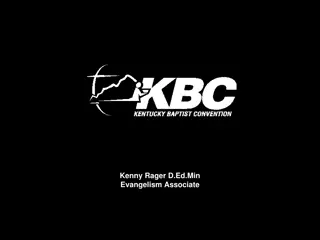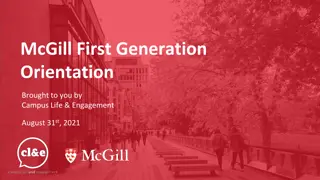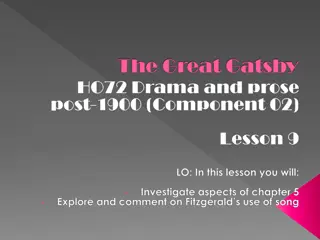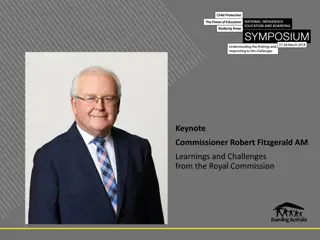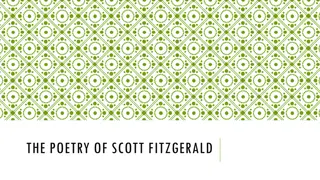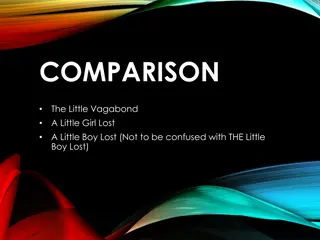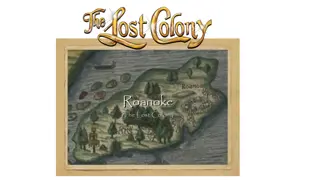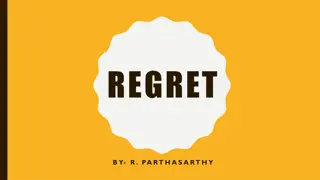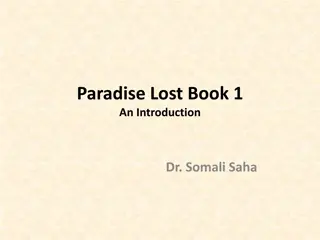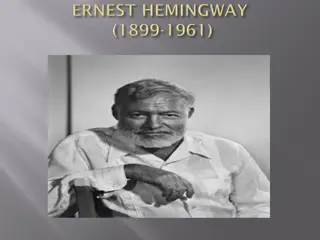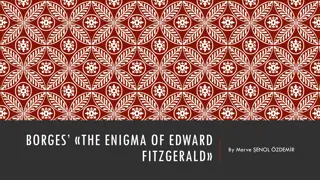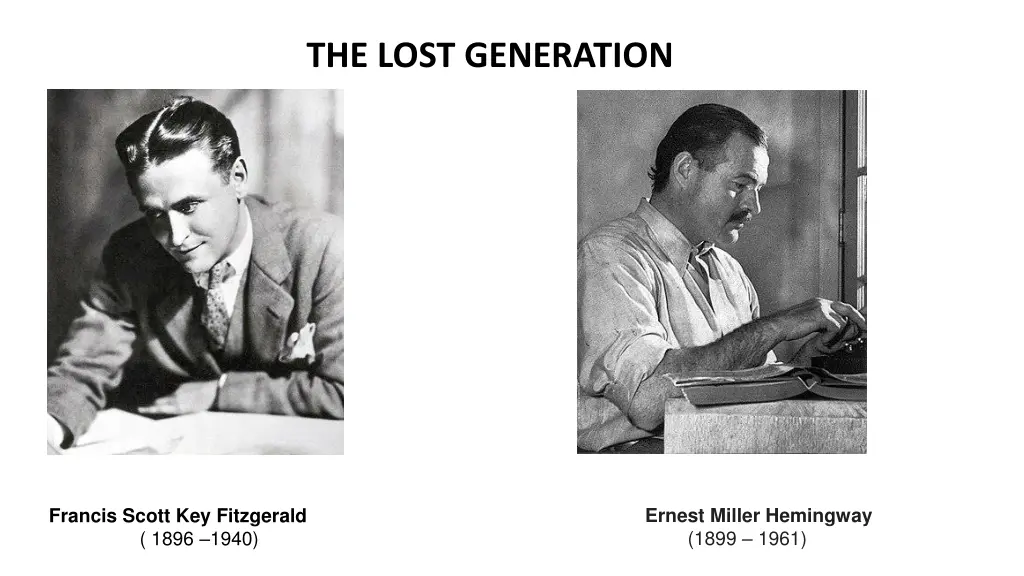
Exploring The Lost Generation: Hemingway, Fitzgerald, and Traumas
Delve into the world of the Lost Generation, including iconic figures Ernest Hemingway and F. Scott Fitzgerald. Explore their impact on literature, the trauma of WWI, cultural shifts post-war, and the complex experiences that shaped their narrative styles.
Download Presentation

Please find below an Image/Link to download the presentation.
The content on the website is provided AS IS for your information and personal use only. It may not be sold, licensed, or shared on other websites without obtaining consent from the author. If you encounter any issues during the download, it is possible that the publisher has removed the file from their server.
You are allowed to download the files provided on this website for personal or commercial use, subject to the condition that they are used lawfully. All files are the property of their respective owners.
The content on the website is provided AS IS for your information and personal use only. It may not be sold, licensed, or shared on other websites without obtaining consent from the author.
E N D
Presentation Transcript
THE LOST GENERATION Ernest Miller Hemingway (1899 1961) Francis Scott Key Fitzgerald ( 1896 1940)
The term "lost generation: "Une generation perdue" (French) Gertrude Stein's phrase Described in Hemingway's A Moveable Feast They are the first generation of American writers that had a great influence on European literature "getting lost": many times Gertrude Stein (1874 1946 First American edition
TRAUMAS 1. WWI. Upbringing Progressivism Optimism, Sense of duty WWI 2. GOING HOME America has changed New conservatism Banning of alcohol Celebrated as veterans But not in the sense of heroes War-experience: cannot be communicated Collapse of traditional values Big words=big lies No heroism Killing machine of the army Though: war experience had its double nature A " study tour" 3. BACK TO EUROPE Back to Europe They do not belong there, either Futurelessness No perspective
MALCOLM COWLEY (critic) Complex trauma Creative impulse Inspiration From a distance they discover how much "being lost" is part of the American experience Themes of American naturalism Elaborated in an intensive /poetic form Innovations in narrative techniques Modernists
Re-enactmenet of the proximity of death in powerful metaphors JOHN DON PASSOS (1896-1970): "the great grinder" ( Three Soldiers, Manhattan Transfer) F. SCOTT FITZGERALD: "The great party" (waste of time, energy, money, life) E. HEMINGWAY:." The great test/fight" (images of violence) John Don Passos
Hemingway: A Moveable Feast / Scott Fitzgerald His talent was as natural as the pattern that was made by the dust on a butterfly s wings. At one time he understood it no more than the butterfly did and he did not know when it was brushed or marred. Later he became conscious of his damaged wings and of their construction and he learned to think and could not fly any more because the love of flight was gone and he could only remember when it had been effortless.
FRANCIS SCOTT FITZGERLD 1896-1940) Chronicler and embodiment of the "Jazz Age" America in the 1920s: economic boom, new attitude to money and wealth Beginnings of consumer ethics New woman-image (in contrast with the generation of their mothers: flapper,short " bobbed" hair, short skirt, independent, self-supporting woman (e.g.: Jordan Baker in The Great Gatsby King & Carter Jazzing Orchestra in 1921, Houston, Texas
Edith Cummings a premier amateur golfer inspired the character of Jordan Baker. She was one of Chicago's famous debutantes in the Jazz Age.Known as: The Fairway Flapper A woman with chin-length bob haircut from behind. A flapper on board a ship
His life's parallel with the "boom and bust": leading to crisis ( Great Depression) Born: St. Paul, Minnesota, middle class family, volunteer for WWI, military camp inAlabama Zelda Sayre: a "Southern belle": getting married after the publication of This Side of Paradise, a fairy tale Excessive partying, travelling, drinking, nervous breakdowns, heart attack at the age of 44 1925: The Great Gatsby: huge success Fascination with money and wealth aesthetic value! Zelda Fitzgerald (n e Sayre; 1900 1948) was an American socialite, novelist, and painter.
The cover of the first edition, 1925 Dust jacket cover of first edition, 1920
1931: Babylon Revisited later short story, painfully autobiographical Appeared in The Saturday Evening Post Honoria: symbolic name, Charlie Wales would like to regain his honor. Can the past be erased? Is there a meaningful future? Babylon: Paris, a city of great culture, and a city of sin Marion and Lincoln: also victims- is their home a more favorable alternative? Charlie: humor! Strong affection between him and his daughter- but: ghosts of the past: Dunc and Lorraine- ambivalent ending: total failure or some hope? Taps at Reveille (1935) is a collection of 18 short stories, published the short story

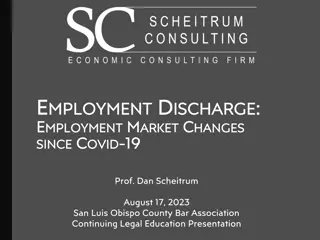


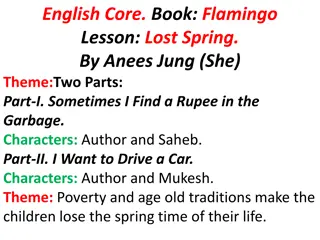

![101 Reviews How to Recover Lost Bitcoin [Scammed/Stolen Funds]](/thumb/153354/101-reviews-how-to-recover-lost-bitcoin-scammed-stolen-funds.jpg)

